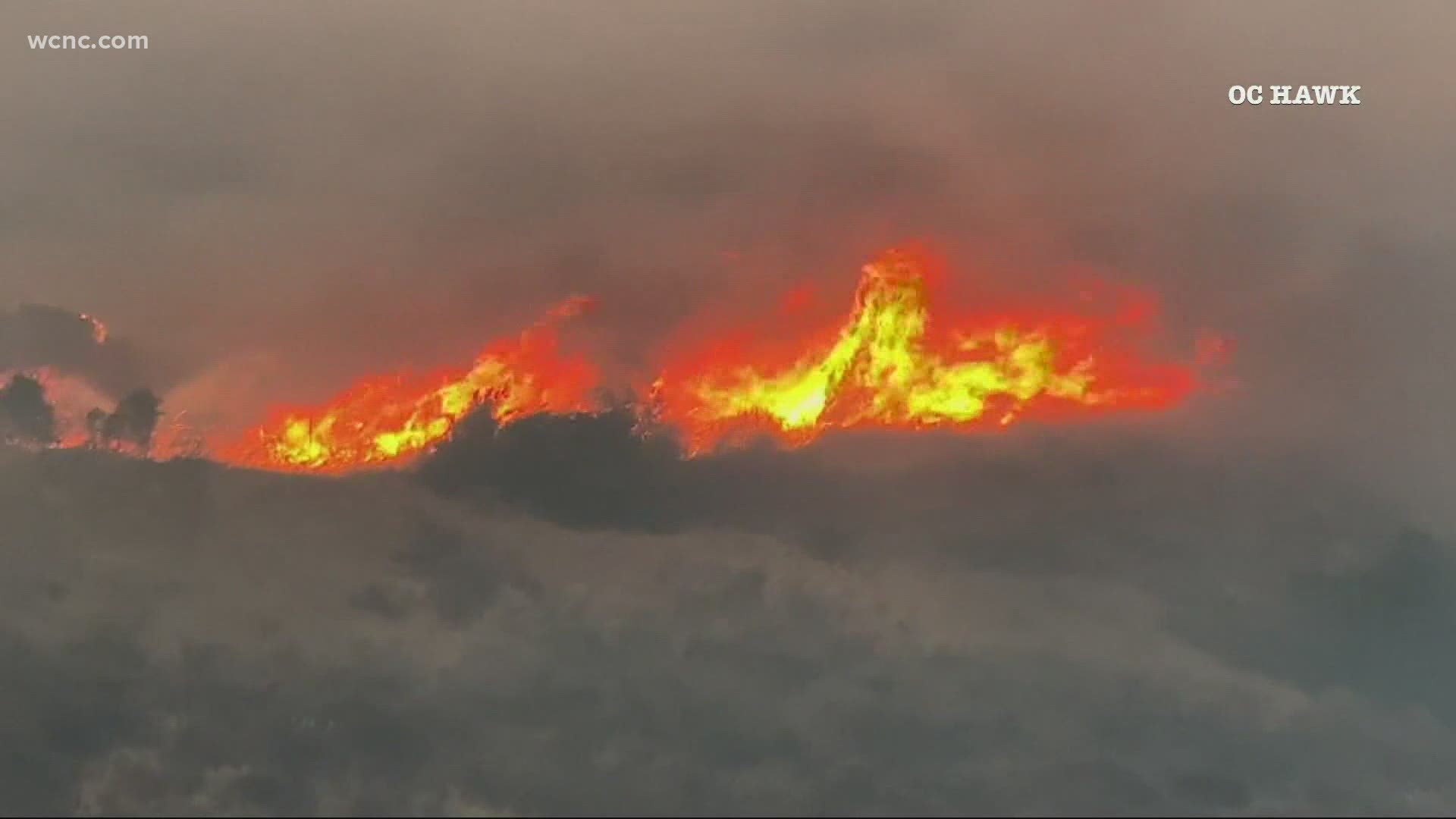CHARLOTTE, N.C. — A Code Orange air quality alert is in effect for most of North Carolina Thursday because of the smoke and haze from wildfires burning in Canada and the Western United States.
With elevated smoke in the atmosphere, the Carolinas will be dealing with higher levels of particulates in the air. Some believe this smoke can help spread COVID-19.
A study conducted earlier this month that's being shared online suggests wildfire smoke can actually increase the spread of COVID-19
THE QUESTION
Could wildfire smoke make it easier for a person to contract COVID-19?
THE SOURCES
THE ANSWER
Yes, wildfire smoke can contribute to someone contracting COVID-19 because the smoke can make you more susceptible to lung infections.
WHAT WE FOUND
The study looked at the 2020 wildfires in the Western United States. It found during the time there was smoke in the air in Reno, Nevada, from Aug. 16 to Oct. 10, COVID-19 cases increased by 17%.
According to the CDC, wildfire smoke can irritate your lungs, causing inflammation and affecting your immune system, and those effects can make you more prone to lung infections like COVID-19.
"it can cause inflammation, and all of those things can lead to someone being more susceptible to raspatory illnesses such as COVID-19," said Dr. Robinson.
She adds that more research needs to be conducted, however, there could be a link to the virus and wildfire smoke.
"There is some thought that the matter within the wildfire smoke may be a vector for COVID-19, there may be some issue here where it allows the infection to hang around in the air longer and it allows it to be more easily transmissible," said Dr. Robinson.
According to the CDC, one way to protect yourself is to limit time outdoors when it's smoky outside and wear an N95 mask.
"While we have suggested cloth masks to decrease the spread of COVID-19 we do know that clothes masks do not protect against wildfire smoke," said Dr. Robinson.
According to Dr. Robinson, more research needs to be done on whether smoke can actually "carry" the virus.
Contact Meghan Bragg at mbragg@wcnc.com and follow her on Facebook, Twitter and Instagram.
VERIFY is dedicated to helping the public distinguish between true and false information. The VERIFY team, with help from questions submitted by the audience, tracks the spread of stories or claims that need clarification or correction. Have something you want VERIFIED? Text us at 704-329-3600 or visit /verify.

